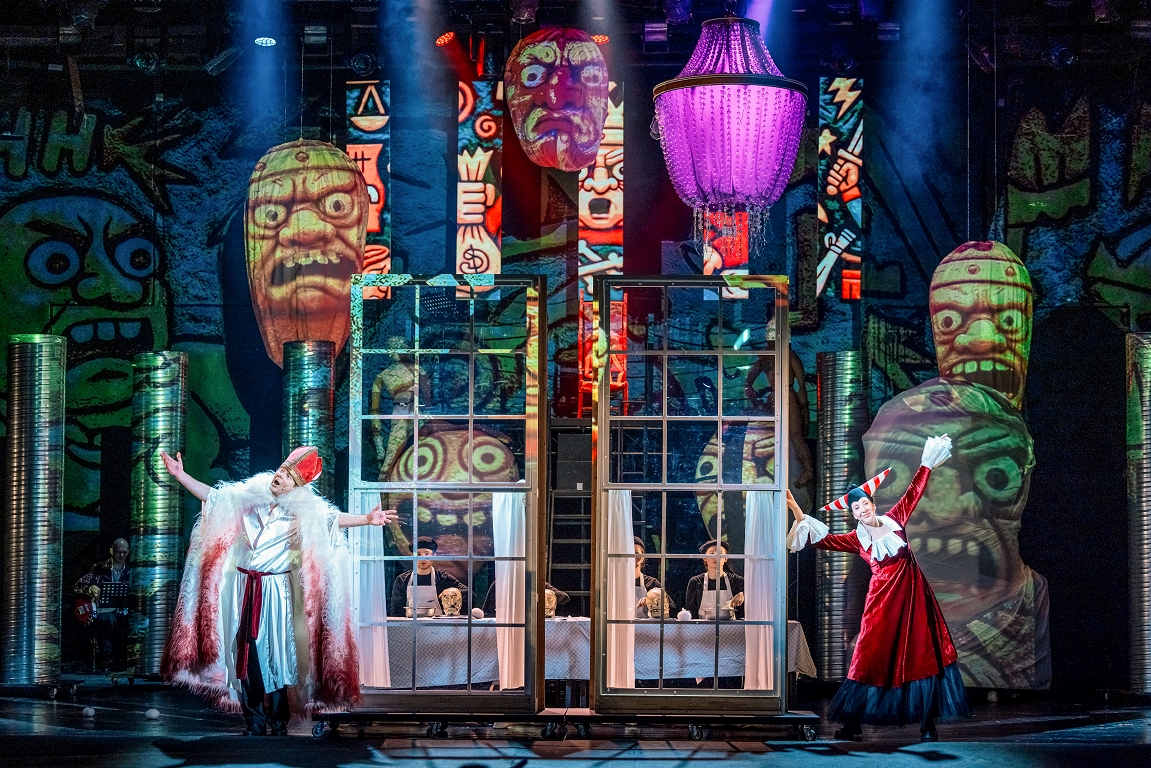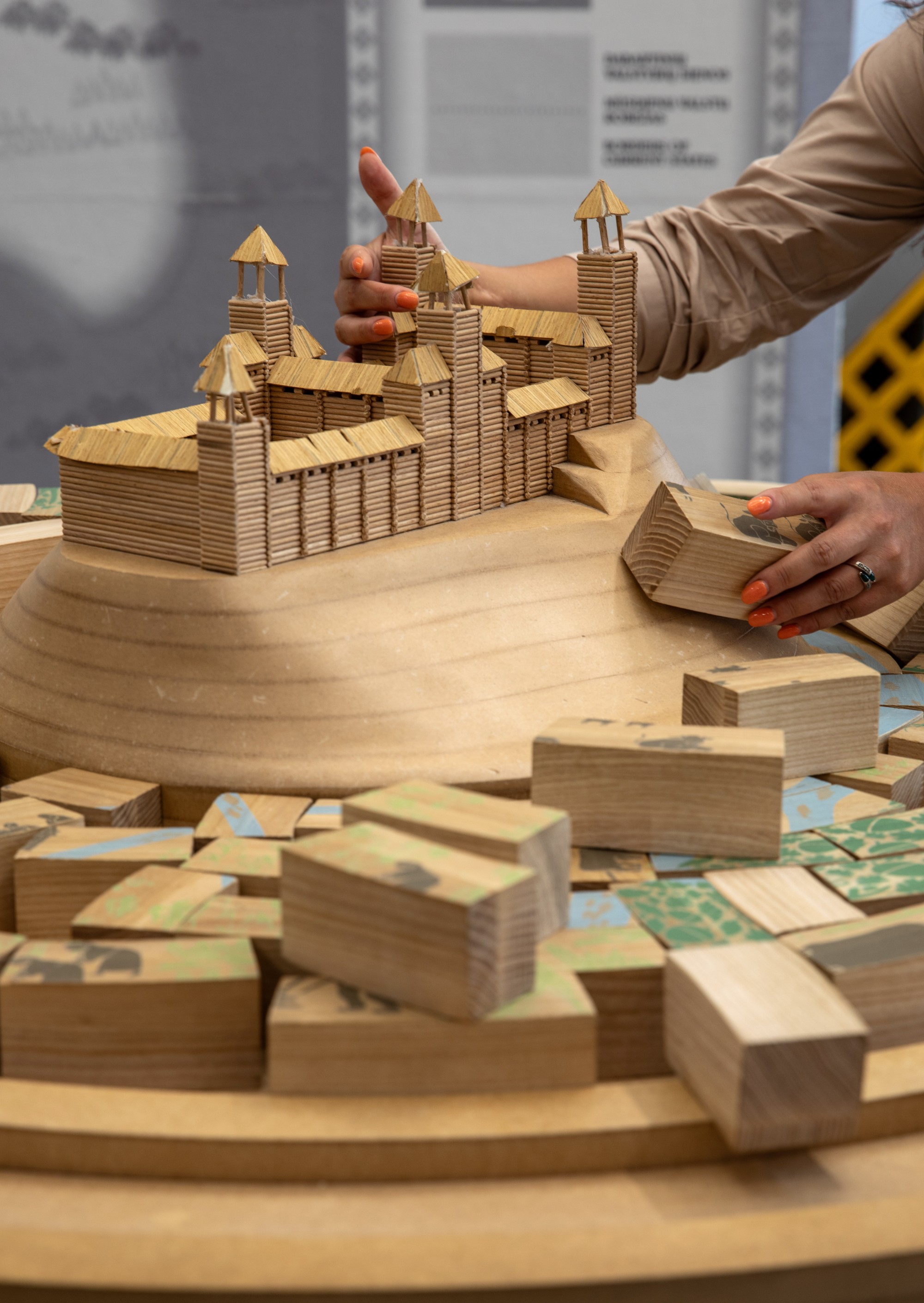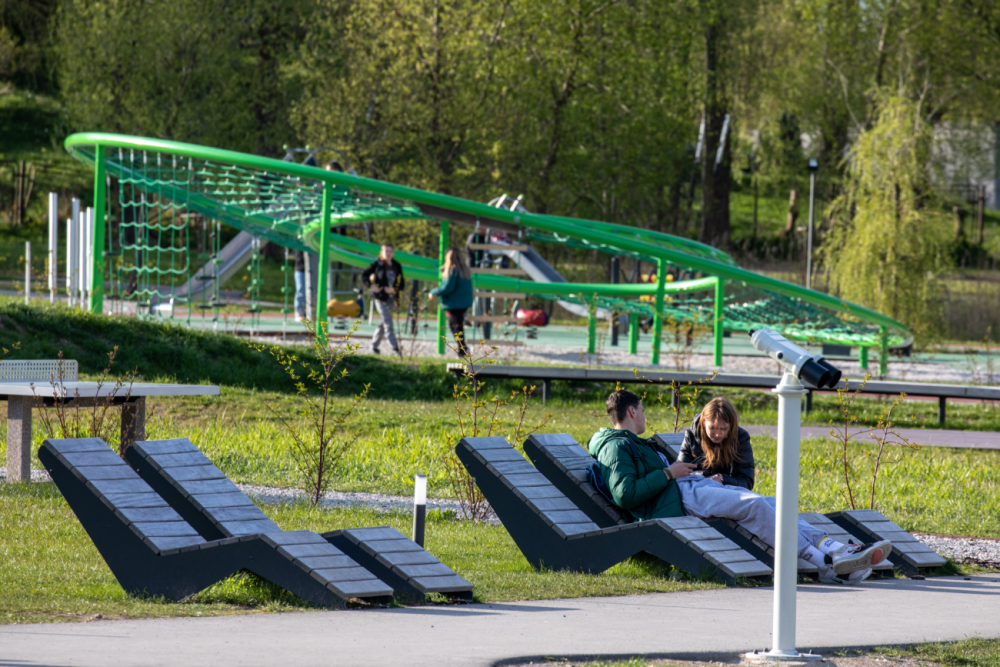The monster out and inside. Director Vladislav Troicka’s King Ibie and other Monster Review / Day

Ukrainian director Vladislav Troicki Latvian spectator met last summer when the repertoire of the Daile Theater appeared on some performances in Freak’s cabaret Stupid life. It was an international project in which the structure of the performance was largely determined by the distinctive performers, who sometimes interacted. Now, creating the absurd show King ibi and other monsters At the Latvian National Theater, Vladislav Troicki has used local actors, but this performance is also a political cabaret with a number of content and aesthetically different parts. What could become the trump of the production turns out to be a stumbling block.
Hopeful start
The authors of the show are three: Vladislav Troicki himself, Alfred Jarie and Elza Marta Ruza. The program features five parts with the content of the content, ironically adding – as in the opera. The unifying element is the release of the Gundar Grasberg conference, in which he tells anecdotes, but rather the similarities about human relationships with God. The actor is slightly flirting with the audience, but retains a certain distance. The first two parts of the show are hopeful: first, the absurd comedy aesthetics tells the story of a man who is directed to power highlands in a controversial company, so it is forced to pretend to be a human eat. The next part is named the chamber opera after the play The king of ibis motifs. Both of these parts are paradoxically exploring power mechanisms, both the National Theater actors demonstrate both alienation and self -irony, and also reminds them of good vocal abilities.
If such musically absurd King Reading with Marcis Manyakov, Mary Berzins, Alexander Brici and other actors would have a full performance, it would certainly be an event in the theater. Alexander Thomas Matjusson’s musical quotes saturated and the realization of the visual concept of Vladislav Troicka, with the stage designer Maria Ulmane, costume designer Annemary Shchegoleva, video artist Tom Zelgis and light artist Oscar Paulins.
By applying the second part as a parody of William Shakespeare Macbeth, It is clarified and yet to some extent narrowing the possibility of interpretation, but overall it is the most valuable contribution to the content of the show. It is a bright and scary world where the mediocre in power is in power. Both the end of the first and second part inevitably calls the war as a chosen solution for further power.
Publicistic nudity
After the very exciting start of the show, there is a landing in a rather domestic (though planned, possibly universal) topic, while trying to talk about the influence of the media on the human mind and what encourages people to engage in emotional exhibitionism. The part that is conceived as a paraphrase on a television show combines motifs from several recognizable TV products: there are both women – life stepchildren – and the ideal man with a rose. However, when playing characters and situations, there is no other value added for this episode, and there is a confusion and a feeling of discomfort. Vladislav Troicka’s performance on the influence of the media is not helped by the context, as this season this topic is incomparably more powerful and advanced in the director Matisse Kaža’s show National Channel. The moment Rudolf Sprukul’s hero begins to multiply on the screen and the new clones are arguing with each other, I have a desperate feeling that I have seen something very similar, just where?
Unfortunately, a quarter of a quarter of the show is even more interpreted, a representation of the TV debate of politicians, which cannot even be called a parody. Again, the setting is clear, there are three types – politicians whose rhetoric is recognizable, two of them turn out to be mutually linked – but in this case, too, the scene is dramatically untreated, that is, the topic is applied, but not developing more than at the highest point shortly before the elections). As a result, the two parts of the show addressed to Latvia are not nearly reached the intensity of the initial initials, and with their posterism, the generally honest actors involved in this scene.
Alignment
The fifth part of the production Happy ending or Wedding Creates the next stylistic turn, namely, as a folklore performance in which Edgar Lipor is involved in the status of an expert and a member, while the choreographer and also Lily Lipor is. As a performance in itself, this part has many attractive qualities: the voice of the singing actors, allowing folk songs and rituals to the natural magic, the visual image of the visual image, sometimes operating with otherwise powerful techniques. Excess in this composition turns out to be the head of the poet highlighted by Rainis’ dreams, which may be wanted as a reinforcement of nationality, but creates another narrative on the stage. The young couple in the middle of the event is relatively static, the most important thing is the ritual as such, including naughty songs, but in the future, the scene turns out to be a generalization of a person and a people, which also allows for severe tests.
The final of the show emotionally smooths out the overall feeling, which is not quite without feasts in its heterogeneity, because there is no answer to the questions: why such a compilation, why such a thematic choice that affected it. The additional materials available in the show program do not really answer it. The manifesto written by Vladislav Troicka here, which suggests whether it is about his companions in various projects listed in the short biographical statement, or whether these « we » are the creators of the show. However, the critical thinking called in the manifesto denies the outcome of the show. The manifesto of Elza Martha Ruz is singular, while her claims to be a part of a « New Theater » at least in the context of a particular project seems to be debatable. Jarie texts, which are important in themselves, are also available, but since the first source is marginalized and only one of the scenes made in the show, Jarie’s views on the theater become less important in this case. As an impulse for reflection King ibi and other monsters It can be useful, but claims to a new, unprecedented way of thinking should not be made in the theater.
King ibi and other monsters
National Theater 9.XI 15
Tickets Ticket paradise In the network EUR 16–40







